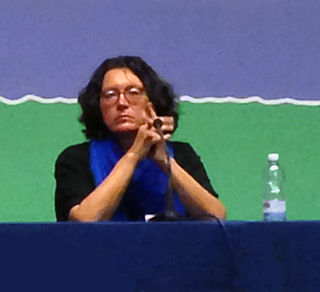Top 20 Quotes & Sayings by Amira Hass
Explore popular quotes and sayings by an Israeli journalist Amira Hass.
Last updated on April 14, 2025.
If a baby is born in Gaza and is not registered with the Israeli Ministry of the Interior, that baby does not exist, it does not count. I get very annoyed when my Palestinian friends complain, 'Why didn't they give me a permit, I am not a terrorist,' because it is not about the person, it is about a policy that people can't articulate because there is no discourse to explain the political intention behind it.
Many Israelis can get to know what's really happening. I mean, you have soldiers who go and see things. It's not like France and Algiers or, I don't know, England and Kenya or Belgium and Kenya. It's in your backyard. It's much more about willingness, indecision, the inability, or exposure. There is a decision not to be exposed. People can live like five minutes away from it all.
Many people just won't connect the social problems with the history of dispossession of the aboriginals. There is one problem with pro-Palestinian activists in Europe and the U.S. with the way they portray Israel as though it were an island of evil in an ocean of goodwill. Unfortunately we are not. This world is not made of benign, progressive states with Israel as the one exception.
I think most Israelis prefer not to know. So for them, texts about the occupation are like something that's been written in a foreign language that they can't understand. If they want, you can translate it to them. But it is their choice. In general, though, I think Israelis don't want to know. Very few do. Basically, I write to the converted.
I have privileges even in comparison to a Palestinian Israeli because Palestinian Israelis who live permanently in Ramallah risk their status, not as citizens but as residents. They might lose their social rights if they move to Ramallah. But I won't, so I live with privileges. That notion is very difficult for me as a child who was raised in a left-wing family, a family of people who suffered discrimination as Jews abroad. The notion that I am so privileged is disgusting. But this is what it means to live in a white society. You are white, so you are privileged.
As a child, I remember asking my parents when I was five years old, "How come if you are not Zionists, you came to the country?" I was surprised at myself that I asked this question. It means that it was always in the air. Then years later I understood it was because of the Holocaust, because they were refugees. They did not come as immigrants and, because of the illusions of the '50s and the late '40s, my mother said, "The world must be better." She could not imagine that it wouldn't be different.

















